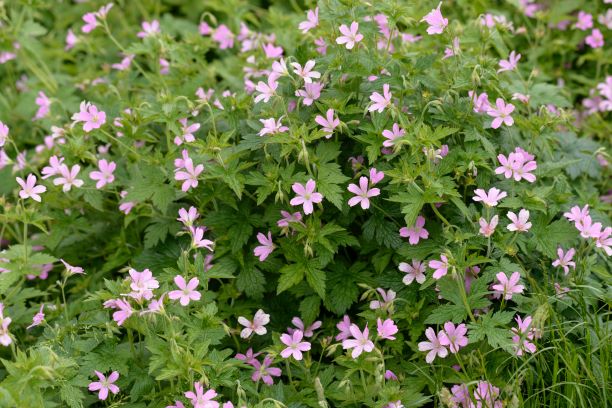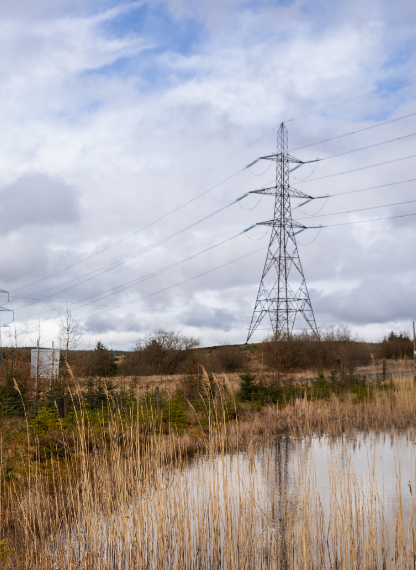Biodiversity includes all living organisms such as animals, plants, fungi, and microorganisms. It’s essential for the functioning of our planet's ecosystems, providing us with food, clean air, water and other essential services.
 At SP Energy Networks, our most significant positive interventions for nature stem from our role in facilitating the decarbonisation of the electricity network. By doing so, we contribute to reducing climate change and minimising its impact on the natural environment. It is crucial that we continue to deliver a sustainable energy supply while prioritising the positive outcomes for nature. As a Scotland-based network we engage with numerous high-value habitats, including peat bogs and ancient woodlands. Our processes are designed to safeguard nature and prevent pollution resulting from our activities.
At SP Energy Networks, our most significant positive interventions for nature stem from our role in facilitating the decarbonisation of the electricity network. By doing so, we contribute to reducing climate change and minimising its impact on the natural environment. It is crucial that we continue to deliver a sustainable energy supply while prioritising the positive outcomes for nature. As a Scotland-based network we engage with numerous high-value habitats, including peat bogs and ancient woodlands. Our processes are designed to safeguard nature and prevent pollution resulting from our activities.
We recognise the urgent need to act on the loss of species and degradation of our natural environment, and have the following commitments in place:
- We are committed to embedding biodiversity and natural capital into our decision-making across our network
- We have committed to achieve 'no net loss' of biodiversity on our activities by 2028 and deliver 'Nature positive' for our direct impacts by 2030
- We are exploring ways to enhance biodiversity across our network, in collaboration with environmental organisations and community groups.
Further examples of our commitments can be read in our Sustainable Business Strategy and our recently published Action Plan for Nature.
An example of our biodiversity activities can be seen in this case study from Andrea Purvis, Quality and Environmental Manager, SP Transmission (SPT):
 SPT recognise that during project delivery there is an impact on the wider environment therefore, to help us reach our Net Zero targets we have developed a process that allows the project teams to understand the biodiversity impact of the works and define actions that can offset that impact so there is ‘no net loss’ of Biodiversity associated with the project.
SPT recognise that during project delivery there is an impact on the wider environment therefore, to help us reach our Net Zero targets we have developed a process that allows the project teams to understand the biodiversity impact of the works and define actions that can offset that impact so there is ‘no net loss’ of Biodiversity associated with the project.
Our specialist contractors establish biodiversity baselines for projects using an amended version of the DEFRA biodiversity metric for the Scottish landscape context. We then assess our project once the design is complete (including construction activities) and establish the loss of biodiversity units that the development will cause.
SPT is not a landowner, so we collaborate with organisations such as Peatland Action, Fisheries, and NatureScot to deliver positive biodiversity activities, reestablishing the lost biodiversity units, in areas local to our projects. This enables our journey to Net Zero, aligns our activities to the Scottish Government Biodiversity Strategy and supports our targets of achieving 'no net loss' of biodiversity on our activities by 2028 and delivering 'nature positive' on our direct impacts by 2030.
Visit the Biodiversity page on our website to find out more about how we are proactively working to improve biodiversity within local communities across our network.